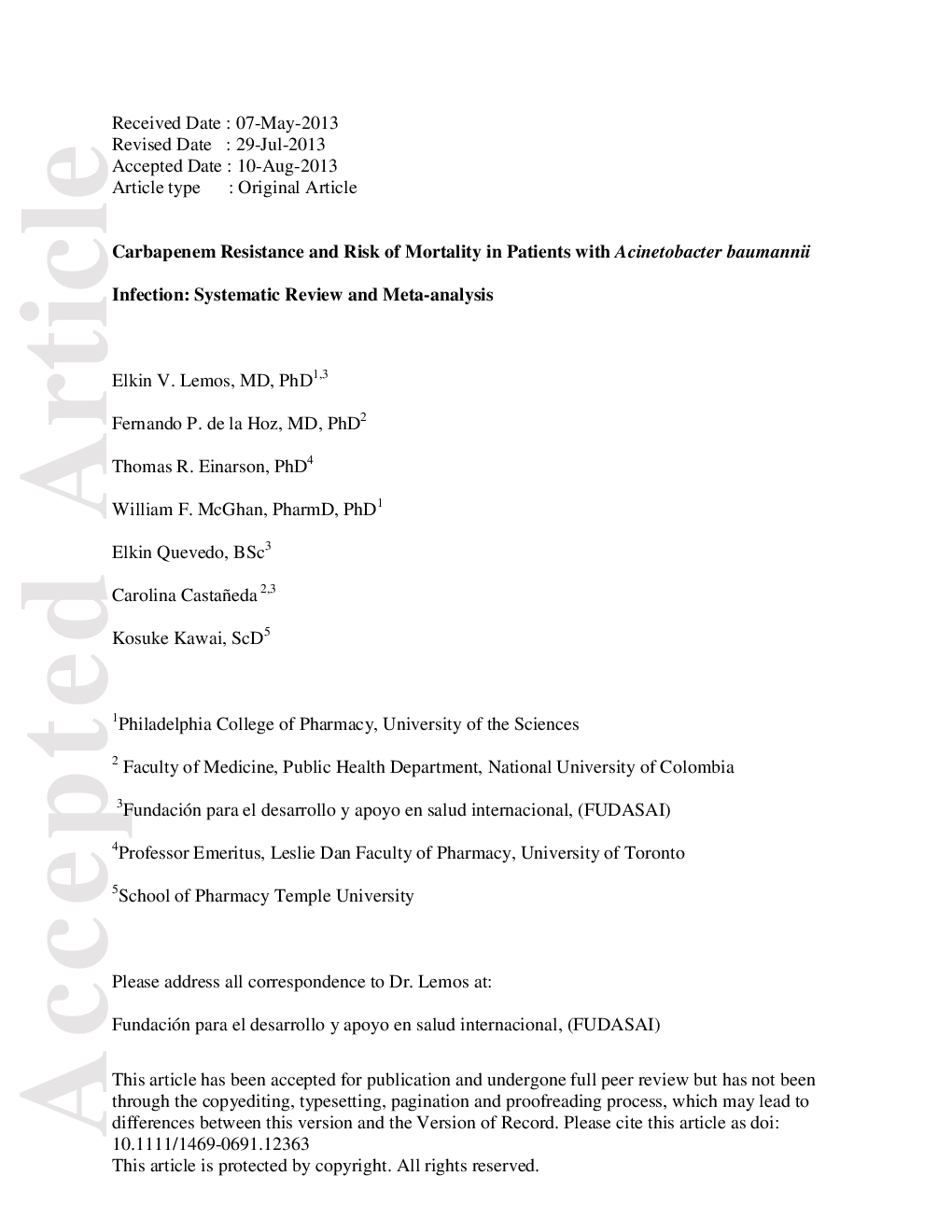| Article ID | Journal | Published Year | Pages | File Type |
|---|---|---|---|---|
| 6130345 | Clinical Microbiology and Infection | 2014 | 19 Pages |
Abstract
Acinetobacter baumannii has emerged as a major cause of healthcare-associated infections. Controversy exists as to whether antimicrobial resistance increases the risk of mortality. We conducted a systematic review and meta-analysis to examine this association. We searched MEDLINE and EMBASE databases up to May 2013 to identify studies comparing mortality in patients with carbapenem-resistant A. baumannii (CRAB) vs. carbapenem-susceptible A. baumannii (CSAB). A random-effects model was used to pool Odds Ratios (OR). Heterogeneity was examined using I2. We included 16 observational studies. There were 850 reported deaths (33%) among the 2546 patients. Patients with CRAB had a significantly higher risk of mortality than patients with CSAB in the pooled analysis of crude effect estimates (crude OR = 2.22; 95% CI = 1.66, 2.98), although substantial heterogeneity was evident (heterogeneity I2 = 55%). The association remained significant in the pooled adjusted OR of 10 studies. Studies reported that patients with CRAB compared to patients with CSAB were more likely to have severe underlying illness and also to receive inappropriate empirical antimicrobial treatment, which increases the risk of mortality. Our study suggests that carbapenem resistance may increase the risk of mortality in patients with A. baumannii infection. However, cautious interpretation is required because of the residual confounding factors and inadequate sample size in most studies.
Related Topics
Life Sciences
Immunology and Microbiology
Microbiology
Authors
E.V. Lemos, F.P. de la Hoz, T.R. Einarson, W.F. McGhan, E. Quevedo, C. Castañeda, K. Kawai,
